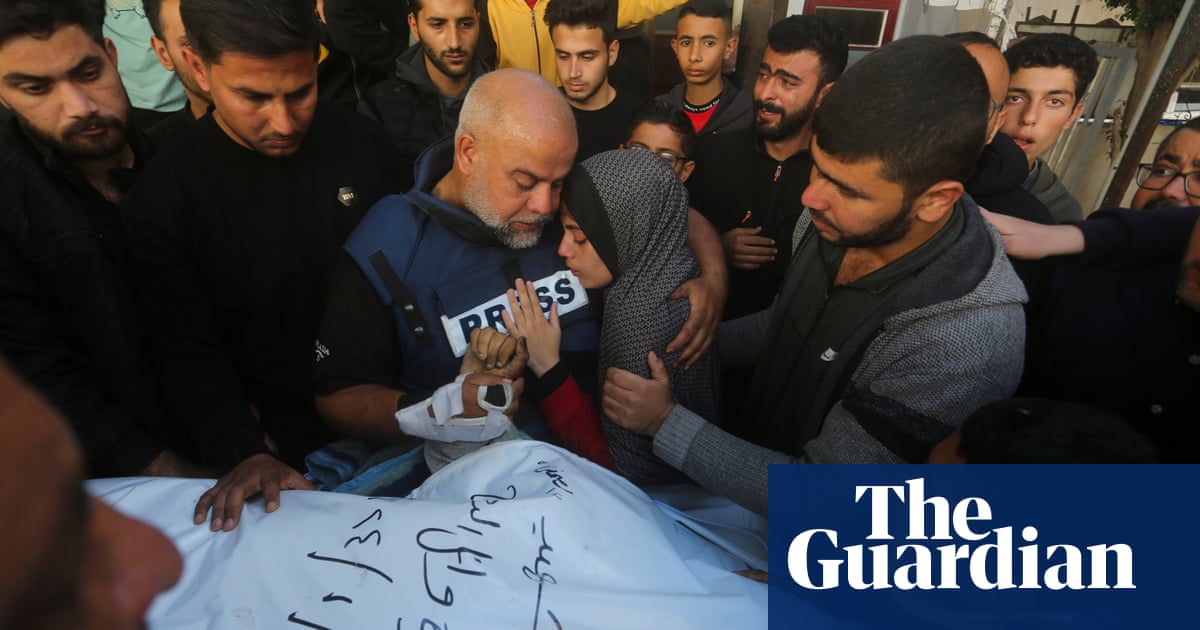
Reporters not respected anymore, says veteran journalist Mohamad Chebaro
DUBAI: On Oct. 25, an airstrike in south Lebanon killed Al-Mayadeen TV’s camera operator Ghassan Najjar, broadcast engineer Mohammed Reda, and Hezbollah-owned Al-Manar TV’s camera operator Wissam Qassem.
It also injured several others including camera operator Hassan Hoteit and assistant camera operator Zakaria Fadel of the media production company Isol.
Other journalists hurt were photographer Hassan Hoteit from Al-Qahera channel, and Youmna Fawaz, a correspondent for MTV, according to media reports.
The Israeli army said the strike, which hit a compound housing 18 journalists from multiple media outlets, targeted Hezbollah militants; however, many believe it was a planned attack on journalists.
Lebanon’s Prime Minister Najib Mikati said the attack was deliberate and both he and Information Minister Ziad Makary labelled it a war crime.
“The Israeli enemy waited for the journalists’ nighttime break to betray them in their sleep ... This is an assassination, after monitoring and tracking, with prior planning and design, as there were 18 journalists there representing seven media institutions. This is a war crime,” Makary said in a post on X.
The Committee to Protect Journalists said it was appalled by the attack, and called for an independent investigation and for the perpetrators to be held to account.
The CPJ is “deeply outraged by yet another deadly Israeli airstrike on journalists,” said its program director Carlos Martinez de la Serna, adding that “deliberately targeting journalists is a war crime under international law.”
“I used to go to conflict zones in the past and journalists were received by all parties with open arms,” said Mohamad Chebaro, a British-Lebanese journalist with over 25 years of experience covering war, terrorism, defense, current affairs and diplomacy.
But “I have been increasingly witnessing the polarization of journalism” by companies or political parties wherein journalists are seen as being “with or against” entities — whether that is a corporation or a country, he told Arab News.
Chebaro explained that “warring parties” feel the need to have their own “media machine,” which makes independent journalism a rare concept. And so “killing the messenger has become easy for every party trying to control the narrative of every conflict.”
He added: “Lebanon is no different than Gaza. Gaza is no different than Syria. And Syria is no different than Iran before it.”
On Monday, Lebanon submitted a complaint to the Security Council “regarding the latest Israeli attacks that targeted journalists and media facilities in Hasbaya in south Lebanon, and the Ouzai area” in Beirut’s southern suburbs, according to the Foreign Ministry on X.
“The repeated Israeli targeting of media crews is a war crime,” and Israel must be “held to account and punished,” the statement added.
Over 400 media workers and journalists from international news organizations have condemned Israel’s attacks on Palestinian journalists in Gaza in a letter released on Oct. 30.
The letter also addresses the escalation of attacks on journalists in Lebanon. It called for the immediate medical evacuations of all injured journalists, protection of those who remain, and fair reporting on Gaza and the condition of Palestinian media workers there.
“We affirm that no one is more qualified to report and deliver the news from Gaza than local journalists, and it is the professional and personal duty of all journalists and media institutions to ensure their protection,” the letter added.
The attack on journalists is in many ways an attack on journalism and the truth, Chebaro said.
He added: “Human beings are not respected in the theater of war anymore. There is a breakdown of the respect and the sanctity of the job of a journalist.
“And unfortunately, we have gone away from the old ethos of looking at a journalist as an independent informing voice.”
As of Oct. 31, the CPJ’s preliminary investigations showed at least 134 journalists and media workers were among those killed in Gaza, the West Bank, Israel, and Lebanon since Oct. 7, 2023.
This makes it the deadliest period for journalists since the CPJ began gathering data in 1992.









